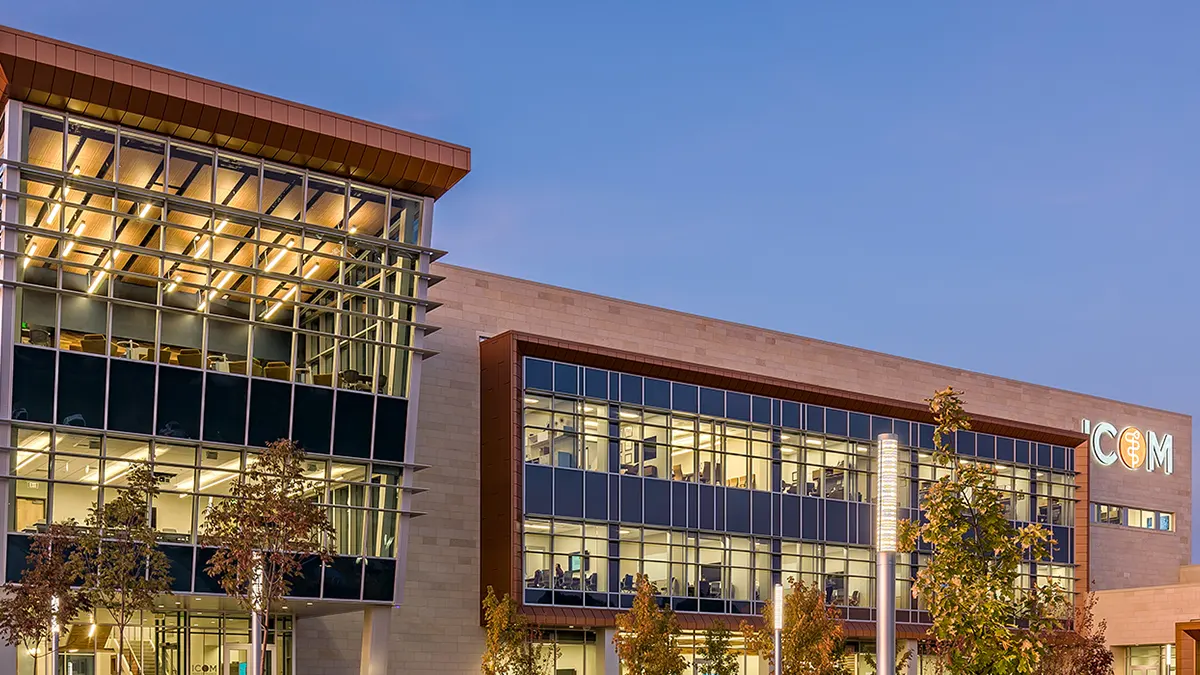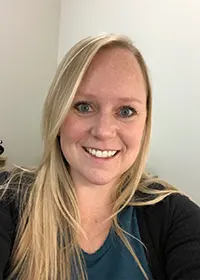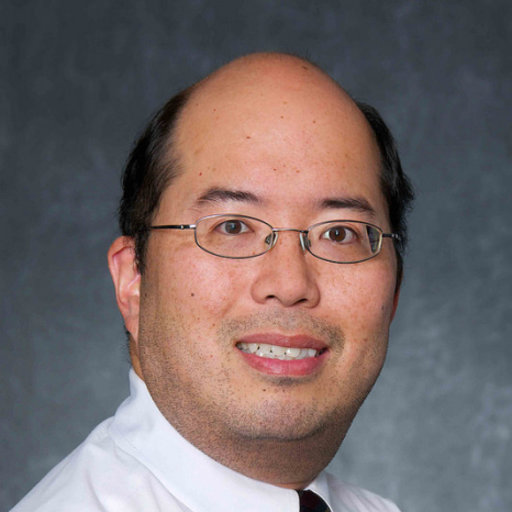Last Updated on October 18, 2023 by Laura Turner
Amanda Griswold (she/her/hers) is the Director of Admissions for the DO program at the Idaho College of Osteopathic Medicine.
Tell us about your position at your institution and your role in the admissions process.
Amanda Griswold: As the Director of Admissions, I help with all aspects of the admissions process, including speaking with prospective students, advising applicants, reviewing applications, moderating interview day, and assisting with the Admissions Committee.
What attracted you to work with this program/institution?
I have always worked in various roles within higher education, including graduate school admissions and advising. I have always enjoyed guiding applicants through what can sometimes be a nuanced admissions process. Working with medical school applicants has been the most rewarding, as these applicants are very determined and have worked so hard to get where they are. There is such a large need for more caring and competent physicians within our communities, and I feel blessed to be a small part of their medical school journey.
About the ICOM Program
Describe your school/program, its mission, and its relationships with the community.
Being the first medical school in Idaho, which is 50th for physicians per capita, our mission revolves around creating caring and competent physicians to serve people in Idaho and other rural mountain states in desperate need of more physicians. We have five mission states: Idaho, Montana, North Dakota, South Dakota, and Wyoming, but we prepare osteopathic physicians to care for any people in need from our mission region and beyond.
What is your vision for the incoming class?
Our vision for our incoming class includes matriculating bright, compassionate, and curious students who will become physician leaders who provide the highest quality of care to each and every individual they encounter.
Why should a student pick your program?
We believe that every student should pick whichever program fits them best. Students often select ICOM for its collaborative and healthy learning environment, where dedication to student success is a core value. Resources are available to help students succeed both academically and maintain the well-being of their mind, body, and spirit.
Application Insights
What types of nonclinical outreach/volunteer work have the biggest impact on an application, if any?
We like to see students engaged in activities they are passionate about instead of just checking a box in hopes that it “looks good” on their application. Showing engagement and drive in any activity can help applicants demonstrate they have characteristics that may make them successful in medical school.
What is your school looking for in responses to program-prompted (secondary) essays?
Through our secondary application, we try to gauge an individual’s understanding of osteopathic medicine. We know not every applicant is an expert on osteopathy, but it is important applicants align with osteopathic principles and practices, as these will be a core part of their education at ICOM. In addition, we hope applicants have some knowledge of our institution and can articulate what characteristics of ICOM will help them become successful physicians.
We get many questions from “reinventing students” who are worried that their low undergrad GPA would remain an anchor in application screening and review. Do you have advice for this constituency?
Although ICOM has minimum GPA requirements, we look very closely at upward grade trends and success in post-bacc and graduate-level science programs. If an applicant is looking to “reinvent themself”, we encourage them to pursue a hard science-focused master’s degree or post-baccalaureate program. Despite poor performance in undergraduate studies, recent success in upper-level science coursework can show the admissions committee where you are now and give them more confidence you can be successful in a rigorous medical school curriculum.
If there was one thing you could make more transparent about your selection process, what would you want to do?
We pride ourselves on being as transparent about our admissions process as possible. However, interviews aren’t guaranteed if you submit a secondary application. While an applicant may meet minimum requirements, every cycle’s level of competitiveness varies. While we may send an individual a secondary application, the quality of their application may deem them a lower priority for an interview. With this in mind, we encourage applicants to complete their application to the best of their abilities, showing us they are competitive with experiences, references, a strong personal statement, and more.
How much impact does having a prior connection with the program have when it comes to considering an applicant for an interview? Prior connections can include participation in pipeline programs, attendance at campus or recruitment events, or working in a research laboratory on campus.
Applicants who show strong interest in our institution are often prioritized when interview invitations are released. With a limited number of interview seats, we want to give those seats to individuals who have shown both interest and a strong connection to our mission, institution, and region.
What are the most important points incoming students should know about your student promotion process (grades, leave of absence, remediation, etc.?
During the first two years here at ICOM, students are traditionally graded with A, B, C, or F. Although students do receive a letter grade, our instructors do not grade on a curve. The ability for every student to earn their grade, independent of the performance of others, has allowed our student culture to be one of collaboration and support.
How do you handle student requests for clinical experience outside your home or affiliated sites?
During the third year, students complete clinical rotations at one of our core rotation sites. Clinical experience outside of these sites is rare during the third year. That being said, the fourth year is comprised mostly of elective rotations. The fourth year can be done entirely at the third-year site, or individuals can pursue clinical rotations and residency audition rotations across the country within other clinical agencies. While we have created connections with many healthcare sites nationwide, students are not limited to these locations. We have a full clinical affairs team in place to help students with this process.
Scholarships/Financial Aid
Can students get scholarships once they are enrolled in your program? What are the conditions for being considered for these scholarships?
As a newer institution, we currently only offer smaller-sized scholarships to Idaho residents. Within the last year, we have developed a non-profit organization that is aimed at raising money to provide additional scholarships and loan repayment opportunities. It will take time to develop these, but we anticipate being able to offer additional scholarships in the future.
How many students join repayment programs associated with service (HPSP, NHSC, AHEC, etc.) before or during their enrollment? Is there any coordination with those program officers with your curriculum?
We have a large population of students (10-15 per class) participating in the Health Professions Scholarship Program (HPSP) within all military branches. These HPSP students make up a very active Student Association of Military Osteopathic Physicians and Surgeons (SAMOPS) organization on campus that is advised by one of our clinical faculty, who serves as an Air Force flight surgeon. In addition, we have a number of students participating in the VA’s HPSP program, as well as a handful of NHSC participants and AHEC scholars.
Final Thoughts
Where do you want to be professionally in 10 years?
In 10 years, I hope to continue helping students achieve their dreams of being medical students and future physicians that provide caring and competent care to our underserved communities.
Would you like to give a shout-out or acknowledge anyone else who has helped make running the admissions process much more smoothly?
I would like to give a shout-out to our whole admissions team. From recruitment to matriculation, everyone on our team strives to be responsive, accessible, understanding, compassionate, and supportive in everything we do. We understand applying to medical school can be stressful and overwhelming, and our hope is that we can make the process as seamless and personable as possible. Kyler, Ellie, and I are available and happy to answer any questions that applicants have. We are here to help!



